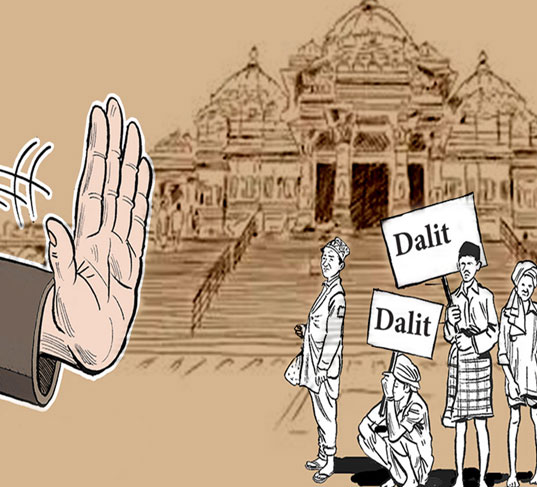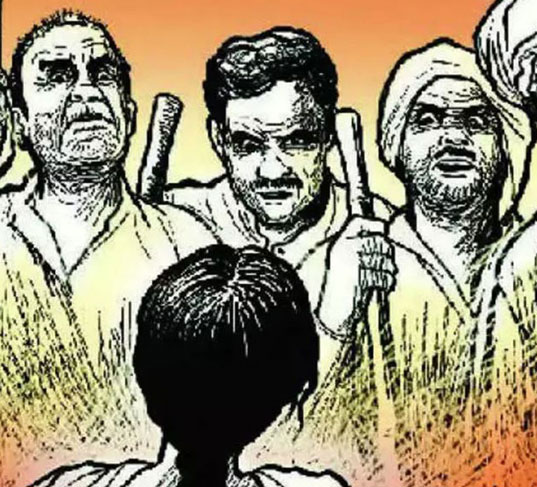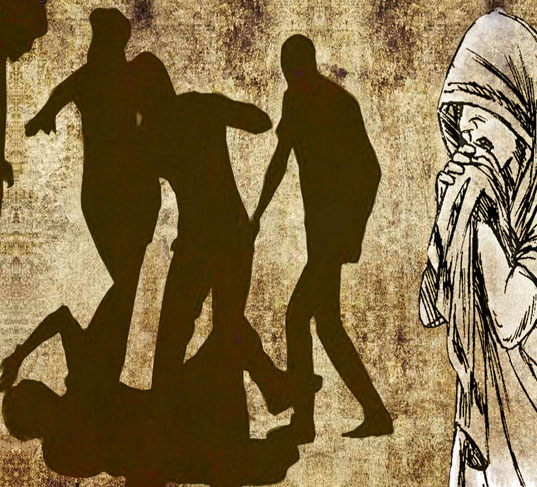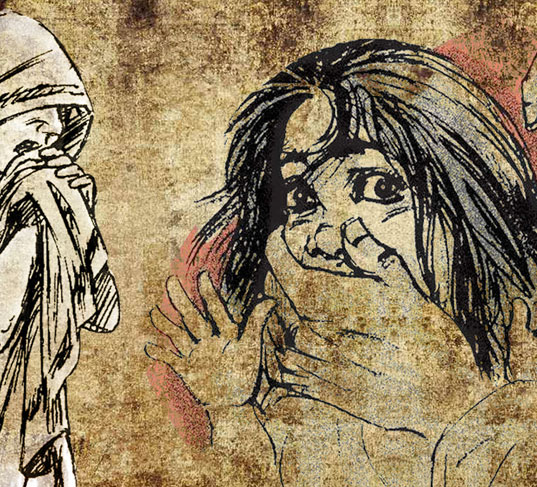
2.1 Constitutional provisions and the Acts relating to offences of untouchability and atrocities
Article 17 of the Constitution of India: “Untouchability’’ is abolished and its practice in any form is forbidden. The enforcement of any disability arising out of “Untouchability’’ shall be an offence punishable in accordance with law."
In pursuance of the above Constitutional provision, the Untouchability (Offences) Act, 1955 was enacted and notified on 08.05.1955. Subsequently, it was amended and renamed in the year 1976 as the "Protection of Civil Rights Act, 1955". Rules under this Act, viz, “The Protection of Civil Rights Rules, 1977” were notified in 1977.
Another Act called, The Scheduled Castes and the Scheduled Tribes (Prevention of Atrocities){PoA} Act, 1989, was enacted and brought into force on 31.01.1990, with a view to, inter-alia, preventing “atrocities against members of SCs and STs, to provide for Special Courts for the trial of such offences, and for relief and rehabilitation of the victims” of atrocities.
Mission

2.2 Amendments have been done in the Scheduled Castes and the Scheduled Tribes (Prevention of Atrocities) Act, 1989 and recently The PoA Act has further been amended by the Scheduled Castes and the Scheduled Tribes (Prevention of Atrocities) Amendment Act, 2018, and after section 18, section 18A was inserted and enforced on 20.08.2018 which reads as under:-
"18A. (1) For the purposes of this Act
(a) preliminary enquiry shall not be required for registration of a First Information Report against any person; or
(b) the investigating officer shall not require approval for the arrest, if necessary, of any person, against whom an accusation of having committed an offence under this Act has been made and no procedure other than that provided under this Act or the Code shall apply.
(2) The provisions of section 438 of the Code shall not apply to a case under this Act, notwithstanding any judgment or order or direction of any Court."

2.3 The Scheduled Castes and the Scheduled Tribes (Prevention of Atrocities) Rules, 1995 made by the Central Government have also been amended by the Scheduled Castes and the Scheduled Tribes (Prevention of Atrocities) Amendment Rules, 2016 and enforced with effect from 14.04.2016.
The amendments broadly relate to provisions of relief amount for 47 offences of atrocities, rationalization of the phasing of payment of relief amount, enhancement of relief amount between Rs. 85,000/- to Rs. 8,25,000/- depending upon the nature of the offence, payment of admissible relief to victims within seven days, completion of investigation and filing of charge sheet within sixty days of lodging FIR to enable timely commencement of prosecution, periodic review of the Scheme for the rights and entitlements of victims and witnesses in accessing justice by the State, District and Sub-Division Level Vigilance and Monitoring Committees in their respective meetings.
The PoA Rules have further been amended by the Scheduled Castes and the Scheduled Tribes (Prevention of Atrocities) Amendment Rules, 2018 and notified in the Gazette of India, Extraordinary, vide notification dated 27.06.2018. The amendments broadly relate to provisions of relief to victims of unnatural offences (IPC 377, Sr. No.44, col.(2) of Annexure -I to Schedule of PoA Rules), grievous hurt by throwing acid (IPC 326B, Sr. No.24, col.(2) of Annexure. I to Schedule of PoA Rules), omission of the limit of 25 members of State Level Vigilance and Monitoring Committee (SLVMC){Rule 16(1) of PoA Rules}, provision of relief in case of death, injury, rape, gang rape, unnatural offences, grievous hurt by throwing acid etc., damage to property, in addition to any other right to claim compensation in respect thereof under any other law.

2.4 Measures taken by Central Government towards effective implementation of PoA Act.
2.4.1 Centrally Sponsored Scheme for implementation of the Acts
The Acts are implemented by the respective State Governments and Union Territory Administrations, therefore, with a view to ensuring effective implementation of the provisions of the Acts, under the Centrally Sponsored Scheme for implementation of the Protection of Civil Rights Act, 1955 and the Scheduled Castes and the Scheduled Tribes (Prevention of Atrocities) Act, 1989, due central assistance is provided to them mainly for:-
- Strengthening of the enforcement and judicial machinery,
- Incentive for inter-caste marriages,
- Awareness generation and
- Relief and rehabilitation of atrocity victims
2.4.2 Institutional structures and mechanisms, regarding implementation of the PCR Act and PoA Act in various States/UTs
- SC/ST Protection Cells at State Headquarters, and Special Police Stations for SCs/STs
- Special Courts and Exclusive Special Courts
- Nodal Officers
- Delineation of “Identified Areas” or “atrocity prone areas”.
- Constitution and meetings of State, District and Sub-divisional level Vigilance and Monitoring Committees


